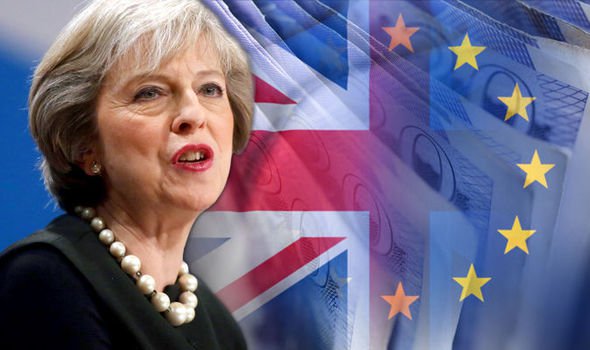May risks becoming a victim of her own Brexit red lines

A recent cover page of renowned magazine The Economist called Brexit “The mother of all messes.” The editors might have been on to something.
When Theresa May brought her hard-negotiated Brexit deal in front of the House of Commons in early January, she suffered the biggest defeat by a sitting government in the history of the institution. Ever since then, it has been amendments galore in Parliament. A myriad of backbenchers tabled motions containing issues that are close to their hearts, while the prime minister engaged in a flurry of talks across party lines and within her Conservative Party.
Tuesday was another big Brexit day. An amendment to rule out a disorderly Brexit achieved 318 votes in favour and 310 against. While this might sound encouraging, the amendment is non-binding and a no-deal Brexit remains a clear and present danger.
Labour heavyweight Yvette Cooper’s amendment to extend Article 50 by up to nine months was defeated by 311 votes to 298. With this vote, parliamentarians inadvertently showed some insight. For one, it is unclear what good kicking the proverbial can further down the road could achieve. Secondly, Austria’s Foreign Minister Karin Kneissl has pointed out that the European Parliament elections in late May constituted a hard stop for negotiations.
May finally achieved a victory of sorts when Graham Brady’s amendment to replace the Irish backstop with “alternative arrangements to avoid a hard border” passed. The Irish backstop is an arrangement whereby Northern Ireland would remain in the EU’s customs union, while Great Britain remained a lesser affiliate, in case no agreements on the future trade relations between the EU and UK could be reached during the 21-month transition period.
After months of insisting that her deal was the only one on the table, May agreed to this amendment. She may have achieved a temporary victory, but it is most unlikely she will achieve anything in Brussels. European Council President Donald Tusk was quick to underline that the backstop could not be renegotiated — neither with a time limit nor by a clause that would allow the UK to terminate it unilaterally. European Commission President Jean-Claude Juncker and EU Chief Brexit negotiator Michel Barnier sang from the same hymn sheet, with the latter reiterating that the 27 member states would not budge.
Indeed, at this point, it is only those 27 heads of government that could agree to any amendment and they do not look poised to do so. The EU-27’s stance is understandable against the backdrop that the backstop is important to the Republic of Ireland, whose biggest trading partner is the UK. Irish Taoiseach Leo Varadkar played his cards well, both internally and within the EU. He first secured cross-party approval for his backstop position. In other words, he does not have to contend with opposition politicians undermining his stance.
This is precisely what May failed to do by leaving it so late to engage in cross-party deliberations. Worse, the constant twists and turns in Westminster and the apparent inability to reach a consensus put at stake Britain’s reputation as a reliable partner on the international stage.
Courtesy : Arab News
